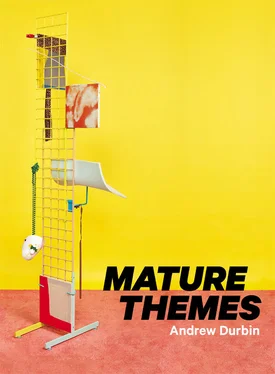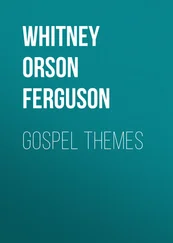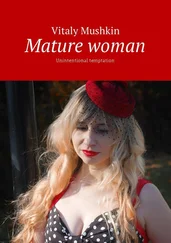Ciara mounts the bike, which, at that moment, doesn’t not feel like me, and asks me to climb on. Where should we go? she asks. I can hardly speak. This moment becomes a second dream in which I imagine where I might go, out of here, so that even when I do shake myself out of it I can’t let go. I remember seeing a Ducati two falls ago on Canal before joining my friends below a moment sparkling in the presence of the Goldman Sachs employees who toasted our protest
as the actualized politics
of community eroded
downtown’s teary sense
of its ensconced
kingdom, like
we got it, OK,
you don’t want this to end,
but we do, even though in a sense
the end brought about a separate
conflict anterior to its original:
how to continue
and still be friends. On Canal,
I spotted a man on a Ducati motorcycle,
perhaps a banker or some other agent
of wealth beyond reproach,
and thought of all gross injustices served
us this, the rich white guy on his bike,
was some reminder of the fault line
that might eventually open up
to swallow him down. If histories
go fast they go faster when compelled
toward an inevitable terminus
made finally realer
in the earnest wish for its sudden
arrival, this delicate
egg of relations I’d like to hurl
at a riot cop’s helmet. The Ducati
looped in steel a black, cold ring
I would place on my own finger
but can’t because I make
pretty much nothing
and can scarcely afford the rent
of my Crown Heights apartment
let alone a motorcycle for $15k. Ciara is right: we are each our own Ducati, molded into the steel frame into which we can lean, one night in fall, to ride you, all the bodies upon whom one rides, impaled by such disasters as the sudden recognition that you can’t stand to look away, caught in the remaining sunlight, and yet must.
The cop, egg dripping from the visor lowered over the helmet, runs forward with his club.
“Catch me in the mall, I can do this, however you want, I can do it up and down, I can do it in circles,” Ciara sings, articulating a body I cannot call my own, but might locate somewhere close to it a secondary body in which he love the way I ride it, impounded by the desire to manipulate and be manipulated into the shape of others, to become with others yet another who might race back with a club of my own, the shape of the fastest motorcycle we can find. Sleek in the discourse that describes us as the inimitable technology designed to destroy one another, I love to ride it.
Outside the JCPenney, Ciara breaks my concentration and asks if I want to go. I hesitate to ask her where, knowing the location she might suggest would be essentially absent everywhere except where it televises itself semirandomly, against the bark of a tree in the woods upstate or in the champagne glass at evening or the broken visor of the egg-soaked cop, now falling back. You make me want to ride it, Ciara sings to Ludacris standing under the street light as he debates whether or not to mount the Ducati. At this, he atomizes into the moment his appearance is rendered nostalgic, a translucent memory that hardly registered at all yet for a time was all-controlling, an event that is replaced by another in a cycle of replacement too rapid to isolate the particulars of.
Actuated methods in a cluster of instruments, loss of the self in the attenuated seams of biopolitical production, blue-faced for the fallen world dropping even faster: Tell him I’m a gymnast, tell him I’m a Ducati, tell him to get off the street, tell him to ride, tell him to step back, tell him to find me later, tell him to check
his phone, tell him to replace
its cracked screen, tell him to take
the A train on Canal, tell him to cross
the bridge, tell him to hand over
his fucking money, tell him
to meet me in the mall,
tell him the history of ideas
is a series of miscalculations
each demarcating various
assumptions of mapped space,
reveries that mangle
then re-cohere into lesser,
but nevertheless raging
trajectories of departure. Tell him I want
to go faster, into the air, beyond
the accident of our moment,
the point where an invisible rope
yanked taut between
impassable hours of leisure
pulls back, a little harder,
the second you resist, and you fly
from the vehicle hurling you
forward. Speed
is a market of energy
directed toward excess.
Once you stop, then what?
We can’t stop, yet the consuming fantasy
to do so upgrades my sense of the need
to go all the faster.
We move at some new rate
toward the indeterminate point
at which something happens
but simultaneously obscures
the character that would
enable us to define it — up
the mountain along
the mountain road into
a world caught in the midst
of its material ceremonies as they
break down. I see something
in them, probably the face of Ciara,
caught between the leaves,
annotating each glimpse
of the woods with another
opaque name heroizing
this yet unbranded age. I ride
into it, a future slashed
at the horizon, lying
just below the setting sun, into
the point at which
it rises over me to summer
in the shadows shifting
so rapidly
as to seem
to not exist
at all.
I could not have written this book without the insight, advice, and friendship of Ben Fama, Ed Halter, Ian Hatcher, Lucy Ives, Kevin Killian, Trisha Low, Jacolby Satterwhite, Tim Terhaar, and Carl Williamson. Most of all, I am grateful for the attention and continuous support of Stephen Motika, who firmly believed in this book before it was ever a book. Some of these pieces first appeared in the Boston Review, The Destroyer, Epiphany, Fence, The Miami Rail, Out of Order, Pocket Notes, and Triple Canopy . Thanks to Travis Meyer and Stacey Tran at Poor Claudia for publishing a selection of this book as the chapbook Believers in Fall 2013. “Prism” was included in Privacy Policy: The Anthology of Surveillance Poetics (Black Ocean 2014), edited by Andrew Ridker. Lastly, I would be nowhere without the love and support of my mother, father, and sister.
Andrew Durbin co-edits Wonder and lives in New York.











